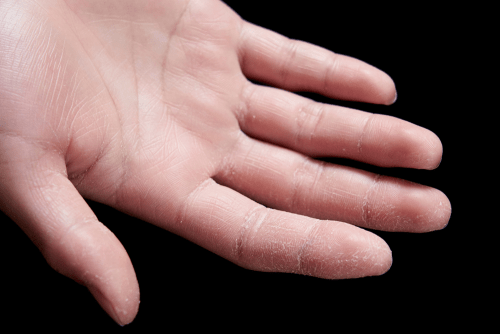 Understanding that eczema is not contagious
Understanding that eczema is not contagious
When it comes to eczema, many people are afraid to be near someone with the condition.
They believe that being close to someone with eczema will make them more vulnerable to catching it. These people look at eczema the same way as they look at someone who has chickenpox. Well, this is not the case. The reality is that eczema is not contagious; no matter how close you are to someone who has it, you need not worry about getting it yourself.
Is there a circumstance where the condition can be contagious?
Understand that eczema is like a lot of other skin conditions. Problems don’t develop until the condition gets worse. That happens when it gets infected with bacteria and viruses.
If this happens, there is a risk that someone can catch the infection, but not the actual condition itself. So people with infected eczema get treatment and stay away from having close contact with others until a doctor says it’s otherwise safe to do.
What’s the most common infection for eczema that someone can get?
Many bacterias can cause eczema infection, but the most common is Staphylococcus Aureus. Even though this might be the most common, it doesn’t mean you will get it from someone. The chance of you catching this particular bacterium from another person infected with eczema is minimal. But it would still be a good idea to stay a safe distance from any person you know to be infected.
Who has a greater chance of catching the bacteria mentioned above?
Certain people are immunosuppressed, have eczema, or have frequent contact with someone with Staphylococcus Aureus infected eczema. These are the people who are going to have a much higher chance of catching the bacterium.
If you are a person that has eczema and you’re worried about getting Staphylococcus Aureus, you shouldn’t be too concerned. The reason why is that secondary infections are not that hard to treat at all. They are relatively easy to deal with. There is only one exception to this: when the Herpes virus or Molluscum contagiosum infects the condition.

What can you do to protect yourself from secondary infections from those with eczema?
That is tricky because there are usually not many ways to know if someone with eczema has a secondary infection. In many cases, secondary infection will not look any worse than the typical eczema infection already. However, to protect yourself, you need to know if someone has a secondary infection, and the best way to do this is by asking.
Someone you will have frequent contact with should not be offended by you asking them such a question. And if they are on top of things, they will get help and stay away from other people until the secondary infection clears up.
Once again, it’s possible that you can catch an infection from someone with eczema, but the actual condition is not contagious. And most people with eczema don’t get a secondary infection. Those who do usually recognize something is wrong and get treatment right away not to pose harm to others.

Comments are closed.